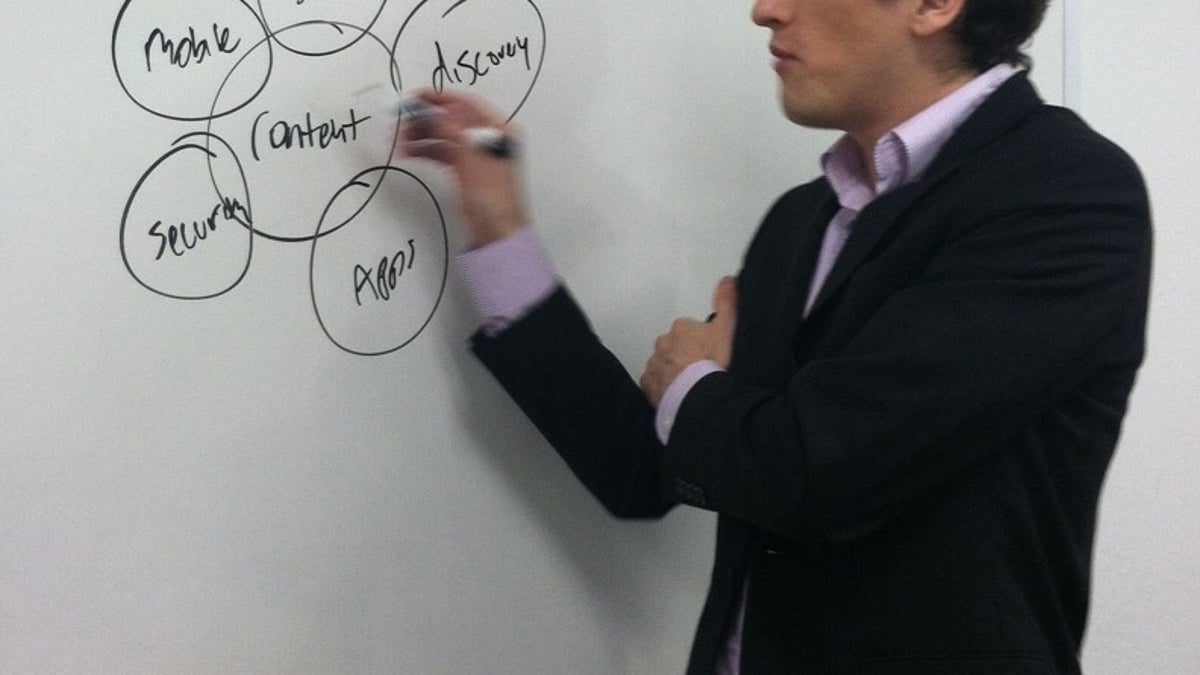Consumerization of IT is more than using an iPad at work
According to Box CEO Aaron Levie, it's just as much about baking the consumer look and feel into enterprise apps--something a new wave of startups is doing.

Like newspapers to the Web, many business software vendors are now reluctantly dragging themselves into the cloud-based enterprise. If they aren't nimble enough, a new generation of companies is ready to take their place.
While major enterprise IT vendors continue to deliver so-called features that keep users tied to their desks and legacy software, companies like Box and others have figured out that the industry is changing right before our eyes. The new enterprise takes the best aspects of consumer applications to make business-critical data available anywhere, anytime.
The majority of the fawning stories about startups that come out of Silicon Valley these days rarely tend to focus on enterprise applications, but there is no question in my mind that the enterprise is interesting again, especially after meeting with Box CEO Aaron Levie.
Levie has been a vocal advocate of the enterprise lately, pushing on the notion that enterprise applications don't have to be overwrought monoliths. Instead, he says, they should offer immediacy of features, ease of adoption, and a smooth user experience. In a nutshell, they "consumerize" IT.
Last week, I spent some time at the Palo Alto, Calif., offices of the cloud collaboration service with Levie and Christopher Yeh, vice president of platforms. What had initially been a discussion about growing an ecosystem quickly turned into a much bigger discussion about what the enterprise is becoming.
Box is an excellent example of what enterprise services of the future look like. Its app is easy to use across large groups, doesn't require IT departments to install and maintain apps, and looks and feels like a consumer application while providing immediate value to enterprise users.
"Using an iPad or Skype in the workplace is one part of the consumerization of IT," Levie said, "but there is an inverse as well--companies like Box, Workday, [and] Zendesk bake the consumer look and feel into enterprise apps. People like using these apps, and they are bringing them into the enterprise."
Indeed, these companies have rethought legacy tools to not just work in the new cloud world, but also to take advantage of what we get from having access to data and applications across all kinds of devices. Their apps are designed to bake in a consumer-friendly look and feel that usurps the power from legacy apps that remain painful to use.
The approach is working well for Box. The company took in an $81 million investment round in October, while counting more than 7 million individuals and 100,000 businesses using the service.
Levie now believes that we are crossing into mainstream adoption of cloud-based enterprise applications, as the company has started to see more and more deals in the $50,000-to-$100,000 range. The Box platform grows as more ecosystem players integrate their applications with Box.
There has indeed been a fundamental shift in the usage of products that are defined as important by software vendors versus the product features that users have defined as important. Users are driving the way enterprise applications look and feel, as well as how they are adopted across organizations.
Many applications and features that have long been considered accessories to existing enterprise software have become essential to work flow. In creating these new apps, core parts of business processes have been reconsidered and redesigned, prioritizing accessibility to data.
"The future of the enterprise is already starting to show," Levie said, referring to application-driven interfaces on tablets and purpose-built apps on mobile devices that offer a more natural user experience.
Levie also noted that the chief information officer of SAP recently purchased 40,000 iPads for internal use that utilize custom-branded applications. Big companies already have their own approved software stacks and, in many cases, their own app stores, so this is a logical extension.

